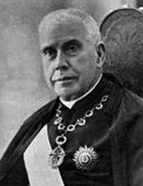

As to the “incommodious dryness”, Soares immediately calls attention, for example, to the concise way in which António Vasconcelos describes the death of the Holy Queen, the moment when the narrative of his “first historical attempt” begins, considering that her religious cult had not been previously documented. This “dry style”, however, is not found in all Vasconcelos’ writings, many of which were written with linguistic rigour, simplicity and charm. He even dared to give value judgments, starting in his first historical attempt, ethical judgements that were disapproved of in 1943, which was a time for writing history with no moral judgements and using no qualifying adjectives as in neopositivism. This is something Vasconcelos luckily remained immune to while sometimes even painting moral pictures in flights of creative imagery.
António Vasconcelos had a special liking for biographies, which allowed him not only to provide detailed descriptions but also give a colourful reconstruction (Soares). This is clearly visible in Brás Garcia Mascarenhas, which he began publishing in 1912, and in texts that had originally been formal, such as the lecture on which A Sé-velha de Coimbra (The Old Cathedral of Coimbra) (1930-1935) was based. This was a work that Soares classified as being “more than a serene and cold study of historical reconstitution, but a true and splendid hymn of praise to the Cathedral of Coimbra” («Prof. Doutor», 1943, p. 17). However, the text about Inês de Castro, initially written for his ‘History of Portugal’ classes, is totally dry following the style of his 1894 work, thus “armouring himself against sentimentality with an impartial and austere coldness, necessary to historical studies”. Virgílio Correia considered it “the culmination of his literary career” («Inês de Castro», O Instituto, 75, 1928, p. 642).
In his works, he was a critical unraveller of legends, a priest with an open culture who made value judgements about institutions and religious acts of the past, but who was reserved as to transcendental issues. He had moral and intellectual virtues subsumed in an “individualizing methodology” of history (Carreras), talents that he knew how to instil into the research centre he directed and that Pierre David, who arrived in Coimbra in 1941, internationally prominent and grieving for his homeland, reconstituted some years later (1947) in a heartfelt text.
